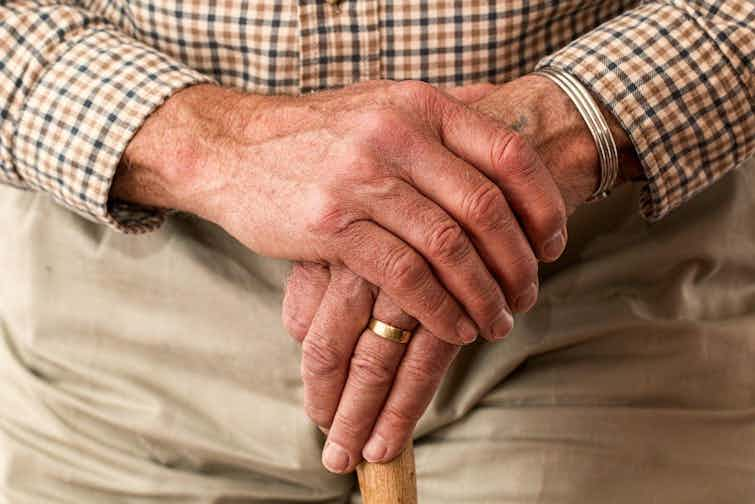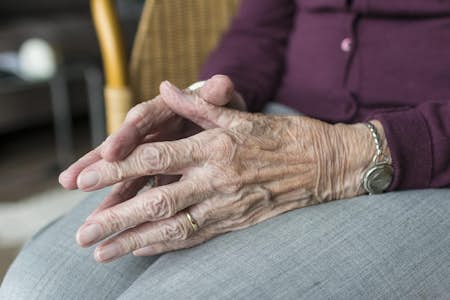The winter months bring a unique set of challenges that you need to be appropriately prepared for. With so many conflicting ideas out there, the key is to find a simple, straightforward approach that works in the real world.
This is a chance to not only make sure your loved ones are okay but to show them that no matter what they need, you’re always there for them. It may sound a little daunting at times, but it will ultimately bring you even closer together.
Whether you're looking for a personal alarm for yourself or something to put your mind at rest about a loved one's wellbeing, there's something for all needs in this fantastic range of caregiving and monitoring aids.
The importance of planning ahead
The key to making sure the winter months are as comfortable for your parents as possible is to make sure they have everything ready and waiting. Paying their home a visit and asking them where they spend most of their time will give you a much better idea of what they need. Consider these for example:
- Figuring out how much time they spend in each room, so you know where to focus on
- Ask them how likely they are to take trips out and what times of day these typically occur
- Discuss practical matters like their budget, current fuel spend, and whether or not they have any spare electric heaters
These three practical steps will give you the information you need to start putting together a plan. You’ll know which rooms need the most attention, how often the home will be left empty, and what resources your parents can provide. Once you know all this, you can start thinking about the practical issues one by one.
How to make the best use of the heat available
An energy-efficient home will be a warm home, and it will also cost a fraction of the price to heat. The key is to spot sources of potential heat loss early and carry out any required maintenance or repairs quickly and efficiently.
Here are a few common examples you could start with:
- Fit draft excluders to outer doors and letterboxes to prevent heat from escaping
- Opt for thick, floor-length curtains in the living room and bedroom wherever possible to reduce heat loss through windows
- If your budget allows, get quotes for upgrading to double glazing throughout the house
- Make sure all existing windows are secure and easily closed
- Bleed the radiators and pressurise the boiler to get optimal performance from the central heating system
By fixing the simple things first, you can ensure their home retains as much heat as possible. From there, you can start to think about the most efficient, cost-effective ways to keep them warm.
Analysing the energy providers
Predicting when energy bills will rise and fall may be difficult, but this doesn’t mean you can’t save money by exploring multiple suppliers. Price comparison sites will regularly feature and highlight the best deals for a particular utility.
The key is to make sure you find a reputable name with a track record of fair pricing. Some choose to go with one of the big six suppliers purely on reputation and name recognition. In contrast, others prefer the often more competitive rates of the smaller providers.
To do this type of search the right way, you’ll need to have a good idea of where most of your parents’ heat will be coming from. Electric, gas and heating oil are all options, and often you’ll be able to use a combination of them.
A good starting point would be finding out the answers to these critical questions:
- If they use gas, is it piped from the grid, or is it delivered in standalone bottles?
- If they use electric heaters to supplement their central heating, how many do they have, and what energy rating are they?
- And if they use heating oil, how does the price they pay compare to what they would spend if they opted for electricity or gas?
The answers to these may take a little bit of time and research to track down, but they will allow you to create a viable heating budget that works for everyone.
What’s the ideal room temperature for an elderly parent?
21°C is recommended in the bedroom and living room, while temperatures of 22-24°C are ideal in the bathroom. This will make sure your parents are warm and comfortable as they towel down and get changed after a bath or shower.
Maintaining these ideal temperatures is a matter of timing. By knowing when to have the heating come on, you can maintain a balanced temperature 24 hours a day.
For many elderly people on a budget, the temptation is to switch off the heating overnight. The problem with this is that they’ll be breathing in cold, damp air for the eight hours they're asleep, which can suppress their immune system. This makes catching colds and other ailments increasingly more likely, making it harder to stay warm and enjoy the winter months.
Consider these key things to help you and your parents figure out the ideal heating times:
- When do they wake up?
- When do they go to bed?
- Which two rooms do they spend most of their day in?
By having the heating come on at set intervals every hour throughout the night, you can maintain a consistent environment. This not only has the benefit of improving sleep health, but it will also mean less heating is required to warm the house when they wake up. You then need to focus on the waking hours.
How can you keep an elderly person warm during the day?
Setting the heating on a static timer is okay, but a responsive thermostat will be the best option here. When your parents move around or eat a meal, they’ll naturally begin to warm up. If you can use a thermostat to keep the ambient temperature constant, you will make it that much easier for them to remain comfortable.
Opt for something simple to use that only requires them to type in the desired set point. This will ensure your loved one has no issues using it and get the warm environment they deserve.
There are also several other things you might want to consider:
- Give a warm blanket as a gift — the thicker, the better — and make sure it’s long enough to go right down to their feet when they’re sat
- Buy thermals or long pyjamas that they can wear first thing in the morning and when they’re getting ready for bed
- Make sure hot water bottles are readily accessible so they can add a little localised heating during the day if they need to
Keeping your parents warm is clearly vital, but caring for them over the winter also requires you to consider a few other essential points.
Plan to ensure social contact and mental stimulation
Everyone deserves to live a full and happy life, but sometimes events outside our control make this problematic. Taking the decision to shield or self-isolate is never easy, and it weighs particularly heavily on the minds of the elderly.
To help your parents make this decision with minimal impact on their wellbeing, you may want to consider:
- Showing them how to use streaming services with watch-along options, like Netflix, so you can enjoy movie nights together remotely
- Providing them with an eReader or tablet you no longer use so they can follow the latest news and work their way through some page-turners
- Making sure they know how to order food, or telling them you will always keep their kitchen topped up if they can’t get out
These little things can make a world of difference to someone who’s forced to stay inside, for whatever reason, and they only take a little bit of prior planning. You may also want to think about ways to keep their spirits up and what you can do to ensure they’re okay if you haven’t heard from them in a while.
Making yourself accessible to an elderly parent
Your parents spent their life looking after you, which means it may not come naturally to them to ask for help. While you don’t want to be overbearing, you do want to make sure you know how they’re getting on and whether or not they need something.
By making it’s quick and easy for your parents to get in touch, you can combine your need to know they’re okay with their need for social interaction. Here are a few ways you could do this:
- Have a weekly group video call with your siblings where you all log on at a set time and share your stories from the week that was
- If you live nearby, plan to take them out weekly or fortnightly so they can get a change of scenery. By making a point of picking them up from home, you’re inviting them to welcome you through the door and tell you about anything they need some extra help with.
- Maintain regular contact by starting a project or hobby together. For example, you could each be doing the same jigsaw, building parts of a model, or just working your way through the same boxset. The more contact you have, and the more natural it is, the more likely your loved one will open up if they start struggling.
By making sure your parents know you only want the best for them, and that you see them as so much more than someone you have to care for, you’ll grow even closer together.
The key to helping an elderly parent this winter
Communicating regularly and naturally, rather than sounding like you’re checking up, is the way to do it. By remembering that it may be a little difficult for your parents to accept the dynamic has changed somewhat now they’ve reached old age, you can find the right approach in every situation.
Visiting them at home, socialising regularly, and offering a change of scenery when you think they need it will all make a real difference. You should also make a point of listening to their minor complaints about the heating or an annoying draft. This gives you the chance to help them with the things which really matter to them that you might not spot when you’re looking from afar. Even if it sounds like a small thing to you, they’re telling you for a good reason. If you listen and help them solve the problem, you’ll be caring for them the right way.












